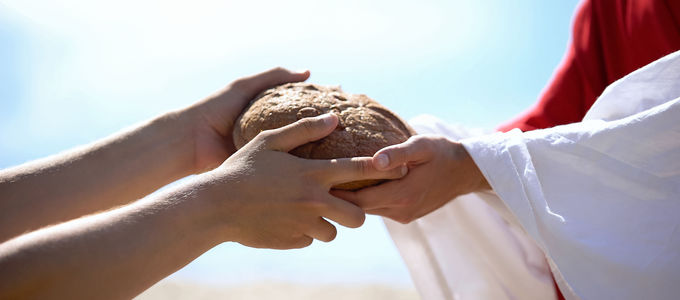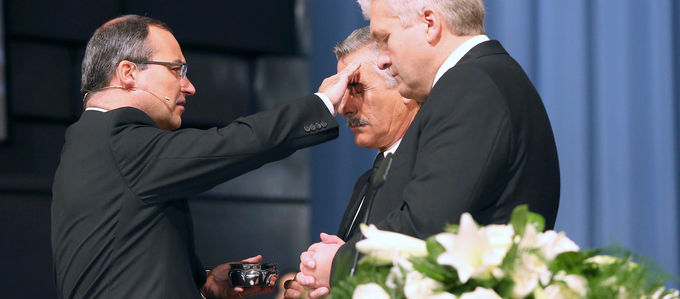
A farewell dinner among friends—with some far-reaching implications: for 2,000 years, Christians of all denominations have been celebrating this festive meal over and over again. Here is what the New Testament has to tell us about the last supper of Jesus Christ.
He was not averse to a pleasant meal with companions, this Jesus of Nazareth. He dined with His friends, the disciples. He ate with those who were frowned upon and despised, the sinners. And He even dined with His enemies, the Pharisees. And each time He did so, He sent a signal. At times it pertained to His authority, at others to reconciliation, but above all, it often also served as a reference to the coming kingdom of God.
Jesus sent the greatest signal of this kind with that round table affair that has gone down in history as the Last Supper. What He did and said on this occasion was passed along from mouth to mouth as a personal experience until it was ultimately written down by different people from different cultures at different times. This explains why the various accounts of the institution of Holy Communion diverge from one another.
One event, various accounts
In addition to what is likely the oldest surviving document of the New Testament—namely the first epistle to the Corinthians—three out of four gospels give an account of the institution of the sacrament. What they have in common are the core elements: Jesus takes bread and wine, distributes both to the disciples, and interprets this act as His body and blood that will be sacrificed.
A more detailed look reveals that there are two different traditions: on the one hand, Paul and Luke are on the same page. On the other hand, Mark and Matthew pull together in their own direction. And then there is also the gospel of John, which likewise provides a detailed account of a farewell dinner. But in this account the actions of Jesus revolve around the washing of the disciples’ feet, and have nothing to do with bread and wine.
An overview of the biggest differences:
- Mark, Matthew, and Luke regard the Feast of the Passover as the date of the event, while John records it happening the night before. Paul stays out of the debate and says nothing on the subject.
- Paul and Luke describe a sequence of separate acts with bread at the start of the meal and wine at the end. Mark and Matthew pack both together into a single event.
- Only Paul and Luke record Jesus’ command: “Do this in remembrance of Me.”
- Only Matthew expressly mentions the purpose: “for the forgiveness of sins”.
Different words, one thought
In their attempts to reconstruct a historically accurate verbatim transcript of the Last Supper, researchers find themselves on shaky ground. In terms of the dating, for example, the majority currently follow the Johannine account, but only a few decades before, the Feast of Passover was considered the fixed day.
At times it also becomes clear, however, that the diverging accounts are all trying to express the same thing: when Mark and Matthew emphasise the Passover as the date, it amounts to the same thing as the standing order: “Do this in remembrance of Me.” After all, for every Jew, the Passover was the recurring commemorative celebration from childhood.
Beyond that Paul, Matthew, and John all use completely different methods to show how far-reaching the significance of the Last Supper actually is. One uses a reference to the return of Christ (“till He comes”). The second goes a little further in the eschatological itinerary (“with you in My Father’s kingdom”). And the third has a whole bundle of farewell speeches ready to go.
This much is clear: the Bible does not supply us with a clear way of celebrating Holy Communion. Even more diverse are the meanings and effects that the New Testament ascribes to the sacrament. This will be the focus of the next part in this series.
Photo: motortion – stock.adobe.com














